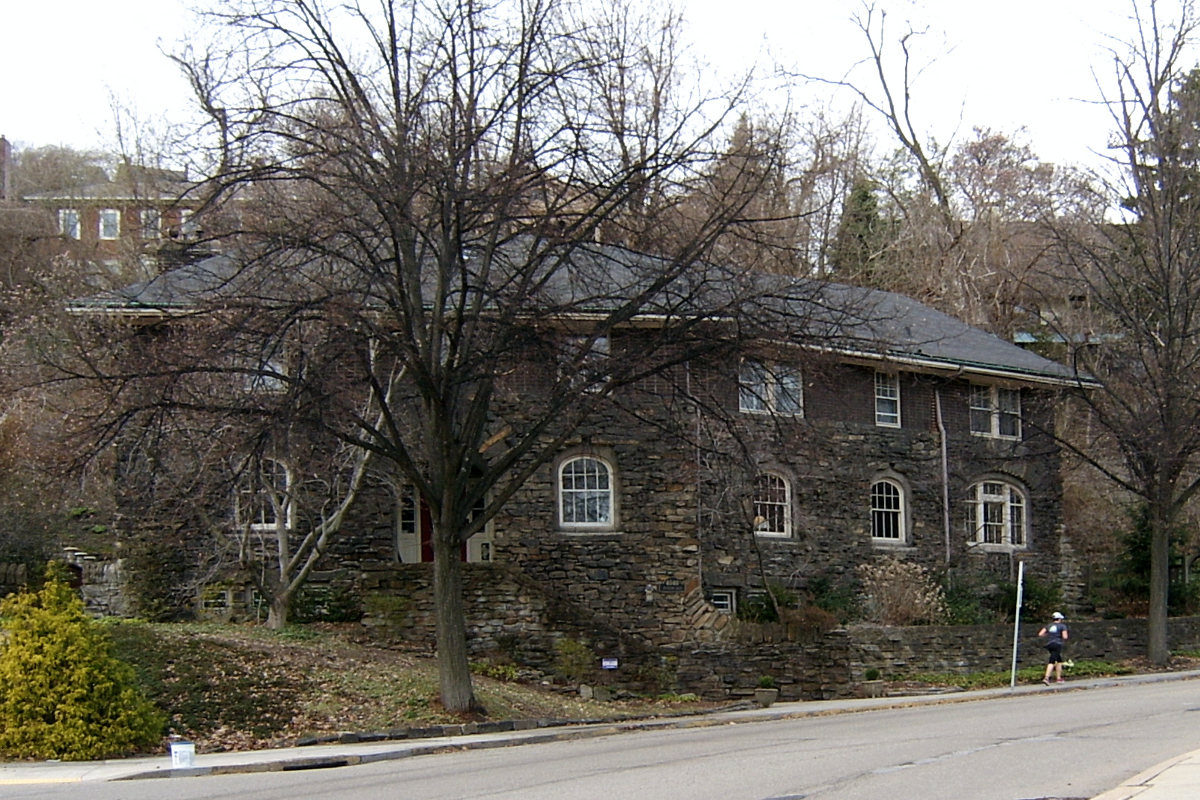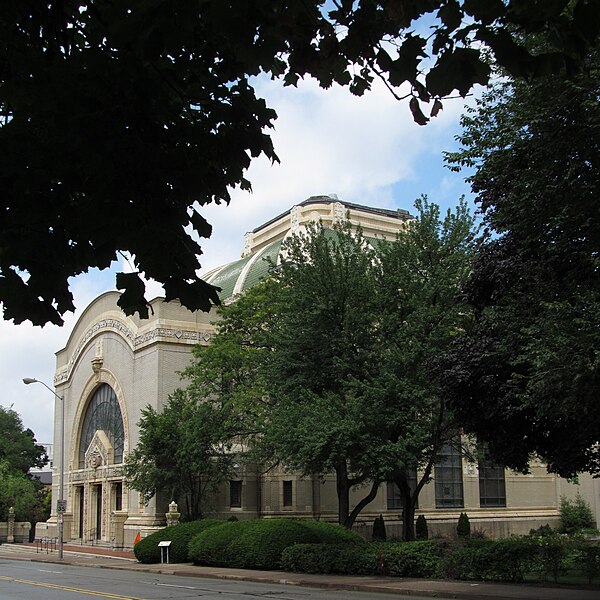
The story told by architectural historian Franklin Toker is that the architect Henry Hornbostel wanted this building to face Fifth Avenue, with a long vista back from the street, but the clients insisted that it had to face Bigelow Boulevard. Reluctantly Hornbostel acquiesced—and then built it his way anyway. What are you going to do? Tear it down and do it over?

This is one of a number of buildings in Pittsburgh inspired by the Mausoleum at Halicarnassus, and this is the one that most obviously follows its model.





















